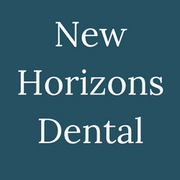
Most dentists perform oral cancer screenings during every routine visit, but there are additional steps you can take to help manage your risk. If you have a family history of the disease, here’s what you can do to protect yourself.
How to Minimize Your Oral Cancer Risk
1. Don’t Smoke
Tobacco smoke contains over 7,000 chemicals, including at least 70 known carcinogens. These substances make cigarettes one of the most dangerous products on the market today, and, according to the Oral Cancer Foundation (OCF), smoking reduces the average user’s life expectancy by 13 to 15 years. Even if you quit late in life, it can significantly reduce your oral cancer risk.
2. Don’t Chew Tobacco
Chewing tobacco might be slightly less dangerous than smoking cigarettes, but it’s still potentially lethal and wreaks havoc on a person’s oral health. In addition to increasing a person’s risk for oral cancer, it also accelerates tooth decay, tooth and bone loss, and gum disease. Chewing tobacco often produces pre-cancerous mouth lesions called leukoplakia.
3. Limit Your Exposure to Secondhand Smoke
Many of the chemicals found in cigarette smoke are transmitted to the people around it. As a result, people with regular secondhand smoke exposure have an increased risk of cancer, heart disease, asthma, ear infections, bronchitis, stroke, and premature death. There’s no safe amount of secondhand smoke.
4. Eat Lots of Vegetables
To lower your risk of oral cancer, look for foods that are rich in carotenoids. Bright red, orange, and green vegetables and fruits, including carrots, Brussels sprouts, collard greens, sweet potato, tomato, sweet pepper, squash, oranges, grapefruit, papaya, and cantaloupe are great options.
5. Decrease Alcohol Consumption
Alcohol is one of the largest contributing factors to oral cancer. The Centers for Disease Control and Prevention (CDC) suggests having no more than two alcoholic drinks per day if you’re a man and only one per day if you’re a woman. People with a family history of cancer should further limit their drinking.
 6. Use an Alcohol-Free Mouthwash
6. Use an Alcohol-Free Mouthwash
Some types of mouthwash use alcohol as an antiseptic, and repeated use could affect your cancer risk. Instead, look for an alcohol-free mouthwash with the ADA Seal of Acceptance or ask your dentist for recommendations.
7. Protect Against the Sun
Sun exposure can cause skin cancer and oral cancer around the lips. To shield your face from the sun, wear a brimmed hat, use a lip balm with sunscreen, and avoid direct sunlight in the middle of the day.
8. Get the Human Papillomavirus (HPV) Vaccine
HPV is a viral infection that affects the skin and mucous membranes. It’s estimated to cause about 70% of cancers in the throat (oropharyngeal), and can be transmitted through skin-to-skin contact and indirect contact, such as touching an infected surface. The CDC recommends that children ages 11-12 are vaccinated against HPV, in addition to any adults younger than 26 who are unvaccinated. If you haven’t received treatment yet, talk with your dentist about the potential benefits.
Oral cancer screenings are an integral part of your overall health. Dr. William S. Akey at New Horizons Dental LLC in Wisconsin Rapids, WI, can address your concerns about oral cancer and provide gentle routine checkups and cleanings. To learn more about the dentist and his team, visit the practice online. To schedule a dentist appointment, call (715) 424-7810 today.
About the Business
Have a question? Ask the experts!
Send your question

